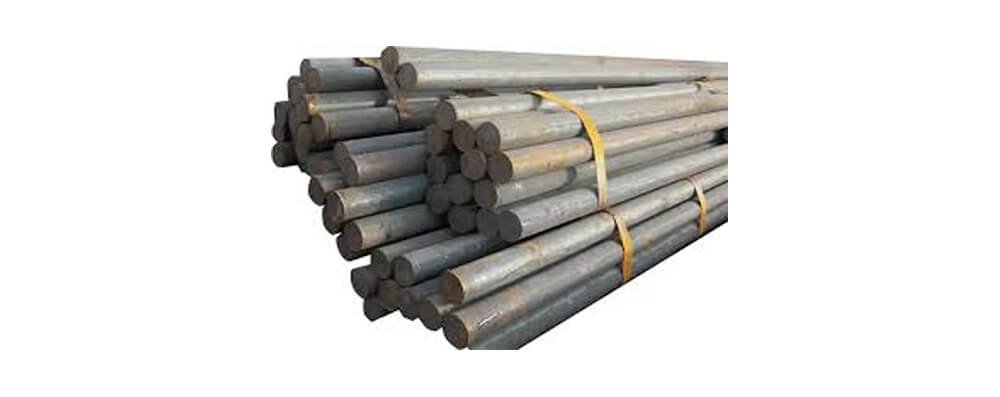Introduction
EN47 is a high carbon-chromium alloy steel primarily used for the manufacture of heavy-duty springs and automotive components. Known for its excellent tensile strength, fatigue resistance, and toughness, EN47 can withstand considerable stress and heavy loads. Its ability to resist deformation and retain elasticity under cyclic loading makes it ideal for critical dynamic applications.
Properties of the Grade:
- High tensile and yield strength
- Excellent toughness and resilience
- Superior fatigue and impact resistance
- Good wear resistance
- Moderate weldability with proper precautions
- Good hardenability and heat treatment response
- Excellent performance under dynamic and cyclic loading
Uses/Applications of the Grade:
EN47 is extensively used in:
- Automotive leaf springs
- Coil springs
- Heavy-duty spring components
- Agricultural machinery parts
- Suspension components
- Clutch springs
- High-stress structural parts
- Hand tools and industrial blades
Chemical Composition:
| Element | Content (%) |
| Carbon (C) | 0.45 – 0.55 |
| Silicon (Si) | 0.10 – 0.35 |
| Manganese (Mn) | 0.50 – 0.80 |
| Chromium (Cr) | 0.90 – 1.20 |
| Sulfur (S) | ≤ 0.035 |
| Phosphorus (P) | ≤ 0.035 |
Mechanical Properties:
| Property | Typical Value |
| Tensile Strength | 850 – 1100 MPa |
| Yield Strength | 600 – 750 MPa |
| Elongation | ≥ 12% |
| Impact Toughness (Charpy V) | Good (depends on tempering) |
| Hardness (as delivered) | 240 – 300 HB |
| Hardened Condition Hardness | 48 – 55 HRC |
Physical Properties:
| Property | Typical Value |
| Density | 7.85 g/cm³ |
| Modulus of Elasticity | 210 GPa |
| Thermal Conductivity | ~ 45 W/m·K |
| Specific Heat Capacity | ~ 460 J/kg·K |
| Coefficient of Thermal Expansion | ~ 11.7 × 10⁻⁶ /°C |
Forging:
Forging Temperature Range: 1050°C – 850°C
Forging Procedure:
- Preheat uniformly.
- Avoid forging below 850°C.
- Allow to cool slowly in sand or lime to avoid cracking.
Heat Treatment:
-
Annealing:
- Heat to 680°C – 710°C.
- Cool slowly in the furnace to obtain a structure suitable for machining.
-
Hardening:
- Harden by heating to 820°C – 860°C.
- Quench in oil or water.
-
Tempering:
- Temper immediately after quenching.
- Typical tempering temperatures: 400°C – 600°C.
- Adjust tempering temperature depending on the desired mechanical properties.
Dimensional Tolerances:
- Hot Rolled Bars: As per EN 10060 standards.
- Bright Drawn Bars: Tolerances to ISO h9/h11.
- Peeled and Ground Bars: Precision to ISO h6 tolerances on request.
Machinability:
- Fair machinability in annealed condition (~55% relative to B1112 steel).
- In the hardened condition, machining becomes difficult and should be limited.
- Recommended to machine in softened (annealed) condition prior to hardening.
Corrosion Resistance:
- Not inherently corrosion-resistant.
- Suitable for dry or controlled environments.
- Surface treatments like plating or painting can enhance corrosion protection where needed.
Weldability:
- Moderate weldability with preheating (150°C – 300°C) and post-weld stress relieving.
- Gas and arc welding methods can be used.
- Weldability is best when material is in annealed condition.
Available Form:
EN47 Alloy Steel is supplied in various forms such as:
- Hot Rolled Round Bars
- Bright Bars
- Peeled and Ground Bars
- Forged Bars
- Cut-to-Length Pieces
- Annealed, Hardened & Tempered Bars
Conclusion:
EN47 Alloy Steel Bar is an exceptional material choice for high-stress applications requiring excellent tensile strength, toughness, and fatigue resistance. Its outstanding properties make it particularly suitable for automotive suspension systems and dynamic machinery parts. With appropriate heat treatment and machining practices, EN47 delivers superior service life and reliable performance under severe operational conditions.
Related Products : 16MnCr5, EN19, 42CrMo4, 20MnCr5, EN353, EN31, EN24, EN47, EN41B, SAE4140, SAE52100, SAE 8620, SCM420, EN36C, Maps


